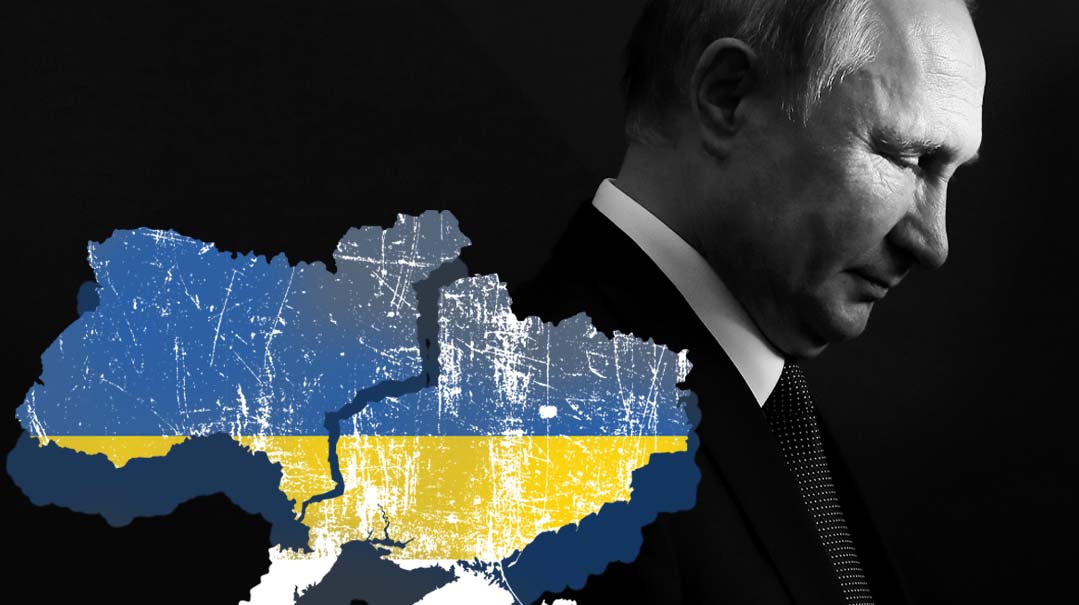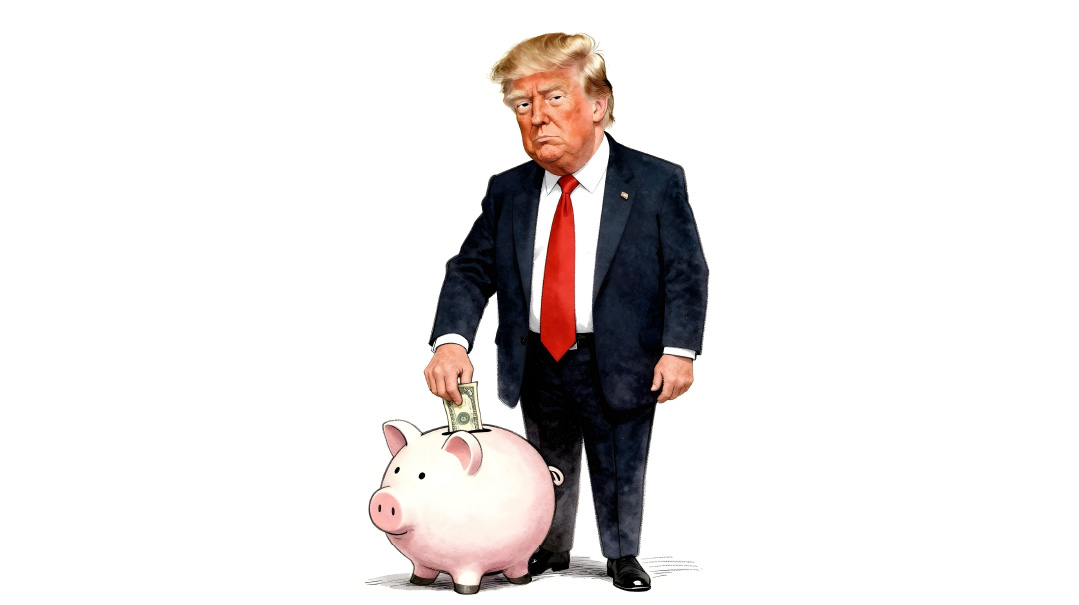Identity Politics, Ukraine-Style

Why the country's identity crisis makes it a tempting target for Putin

It doesn’t take a foreign-policy genius to see that the life-and-death drama now playing out between Russia and Ukraine is the unfinished business of Putin’s 2014 invasion.
It takes more effort to connect the dots with Barack Obama’s failure to enforce his red line over Syrian use of chemical weapons in 2012; or even further back, George W. Bush’s failure to aid Georgia in 2008 when the Russians grabbed a province.
Both were formative experiences that taught Vladimir Putin that America had become a paper tiger.
But it took a rare strategic thinker like Samuel Huntington to predict in 1992 — when the Russian leader was still a bureaucrat in the St. Petersburg municipality — that Ukraine would be split down the middle today, an “identity politics” contest between Russia and the West.
Like any new development that becomes the norm, it’s now hard to fathom that the current conflict wasn’t inevitable.
When Ukraine arose out of the ashes of the USSR in 1991, it inherited a vast nuclear stockpile. Under a 1994 agreement, Ukraine transferred its nuclear weapons to Russia, in exchange for debt relief and security guarantees. Formal agreements sealed a kinship between the two countries that stretches back to a shared heritage in Kyivan Rus, a 10th-century polity.
It was against that backdrop of coexistence that Huntington, an American political scientist from Harvard, made a bold prediction.
The post-Cold War peace was an illusion, he declared, about to give way to global struggles with familiar overtones. “In the post-Cold War world,” Huntington wrote, “the most important distinctions among people are not ideological, political, or economic. They are cultural.”
He termed the new world order “the clash of civilizations,” which went on to become the title of one of the late 20th century’s most influential books about geopolitics.
A central insight was the concept of fault-line conflicts, between states of different civilizations, or inside states straddling a civilizational divide.
That latter category put Ukraine on the professor’s radar. The country is an amalgamation of an eastern, Russian-speaking part, and a western, Ukrainian-speaking half. Ukraine, warned Huntington, “could split along its fault line into two separate entities, the eastern of which would merge with Russia.”
Eerily, that prediction has come true.
In Ukraine’s separatist regions, pro-Russian feelings are high. Meanwhile in western Ukraine, according to Brookings, the opposite is the case. “Since 2014, a Ukrainian national identity has taken hold. In an April 2017 public opinion survey conducted by Rating Group Ukraine, 57 percent of Ukrainians polled expressed a very cold or cold attitude toward Russia, as opposed to only 17 percent who expressed a very warm or warm attitude.”
The clash of civilizations thesis was massively controversial at the time because it contradicted the then-dominant notion that liberal democracy had triumphed. Some would argue that the Russia-Ukraine conflict is simply Putin’s imperialism, not a clash between civilizations.
But whatever the faults of the concept, one thing is for sure: Vladimir Putin sees Russia-Ukraine through a civilizational lens.
“Our kinship has been transmitted from generation to generation, in the blood ties that unite millions of our families. We are one people,” he said in a speech last year.
So, President Biden can splutter about democracy all he likes, but the salient fact is that Putin sees Ukraine as a cultural extension of Russia.
It’s a kinship that Putin will press on Kiev — by force if necessary.
“Our criminal justice system is clearly broken”
The above statement by Craig Greenberg, a mayoral candidate in Louisville, Kentucky, has to be the understatement of the month.
The Democrat survived a shooting by Quintez Brown, a social justice activist running for Louisville’s Metro Council. But although Brown was charged with attempted murder, a $100,000 bail posted by a Black Lives Matter affiliate saw him released days later.
“I’m sure that the judge who set the bond believed that the bond was going to keep the person in jail,” said Sean Delahanty, a former Louisville judge, according to AP.
“Because how many people charged with murder have the ability to post $100,000 cash bonds? Before bail projects, I would be willing to bet it was a rare occurrence.”
Having gone all-in on the Defund the Police movement, Democrats eyeing the midterms are gently edging away from the far-left mantra — a trend that will be accelerated by the Louisville debacle.
The Backstory
It’s decades since the heyday of American-British askanus cooperation, when Rabbi Moshe Sherer mentored Rabbi Abba Dunner and English Agudah.
So, a mission to Agudah HQ in New York by the Pinter Trust — a newly formed chareidi PR initiative based in London — was in a sense a renewal of old ties.
The trust, named after Rabbi Avrohom Pinter — a strong voice for Britain’s chareidi community who was niftar in the first Covid wave — seeks to actively shape perceptions of the community in the government and media spaces.
Common language apart, extrapolating from the American to British political and legal contexts is never easy. In recent years, the heft of the American Orthodox world has repeatedly been deployed in the service of causes such as the recent struggle for Alta Fixsler’s life.
But the rise of secularist attacks on religious freedoms, such as the simultaneous struggle for Orthodox education in both New York and Britain in recent years, signals a convergence that will bring the old and new worlds together again.
63%
According to the Haredi Institute for Public Affairs, this is the true percentage of Israeli chareidim in the workforce — not as Finance Minister Avigdor Lieberman recently claimed, under 50%.
Chareidi unemployment — or rather, long-term Torah study — has once again become a political battleground. The current government has inflicted significant financial pain targeted at kollel families, and more is on the way.
Next on the chopping block is arnonah, or council tax discounts for families with only one breadwinner.
Will financial hardship lead to Gemaras closed across the country? For the many thousands of families fervently committed to Torah learning at all costs, the Treasury’s assault just feels like gratuitous cruelty.
And Lieberman’s distortion of statistics will feed the suspicion that for a politician pandering to his secular base, that’s actually the point.
(Originally featured in Mishpacha, Issue 900)
Oops! We could not locate your form.






